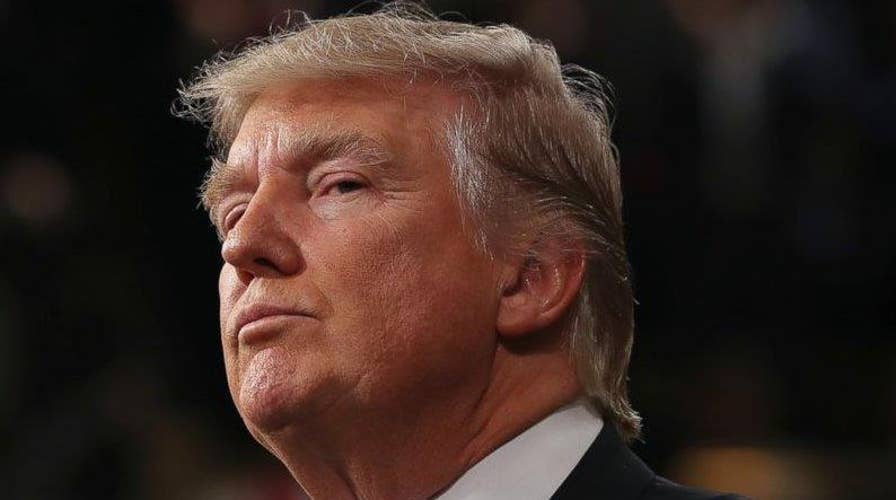Will GOP Hill staffers find a smoking gun on wiretap claims?
The NSA is supposed to turn over a set of documents to the House Intelligence Committee; James Rosen provides insight on 'Special Report'
Even before her now-famous MSNBC comments explaining why "you have the leaking" on alleged ties between Trump officials and Russia, former defense official Evelyn Farkas had undertaken a media campaign to pressure her old colleagues in the Obama administration -- even Barack Obama himself -- to disclose what they knew.
Farkas, who left the administration in 2015 after serving as a deputy assistant secretary of defense, raised eyebrows in the March 2 interview on MSNBC when she said there had been a rush to share information before President Trump took office.
“I was urging my former colleagues, and frankly speaking, the people on the Hill … ‘get as much information as you can, get as much intelligence as you can before President Obama leaves the administration,’ because I had a fear that, somehow, that information would disappear with the senior people who left,” she said.
“That’s why you have the leaking, because people were worried,” she added.
RICE CLAIMED IGNORANCE ON TRUMP SURVEILLANCE
The interview came two days before Trump accused Obama of wire-tapping Trump Tower. While that allegation remains widely disputed, the White House jumped on Farkas’ remarks as proof that intelligence leaking had taken place in the Obama White House. White House Press Secretary Sean Spicer called her remarks “devastating.”
'We need President Obama to share with the public the information the FBI has to date on this issue.'
But the MSNBC comments were hardly the only time Farkas encouraged the distribution of intelligence on Trump officials.
In a Politico column in December, Farkas voiced concern that the American public doesn’t have access to the information the intel community has on connections between Russia and Trump.
“The information needs to be made public,” she wrote. “If the answers yield further evidence that the president-elect is indebted to the Russian government or individuals with Kremlin ties, the intelligence community and policy officials should also begin disclosing what they know about whether Trump's associates have been in contact with Russian officials, and what they've been discussing.”
She went on to warn that officials with answers to those questions and who could declassify that intel were to leave office when Trump took office.
Just days before Trump took office, Farkas went a step further in a piece for Newsweek and called for then-President Barack Obama to step in.
“We need President Obama to share with the public the information the FBI has to date on this issue, and we need President-elect Trump to explain the full extent of his ties with the Kremlin and influential Russians,” she wrote.
After the MSNBC appearance, Farkas spoke on March 20 with the BBC about the existence of evidence showing Russian interference in the presidential campaign. “Some of that, the proof is in very tightly held, classified channels,” she said. “… And also the question of whether Trump’s people were involved probably also would show up in those channels.”
Farkas has not made her encouragement of such disclosures a secret. At the same time, she has stressed that she wasn’t personally involved, and recently suggested her MSNBC comments were taken out of context -- saying she wouldn’t specifically encourage leaking.
“At the end of the interview I did start a new thought ‘that’s why they leaked,’ but got cut off. I would have explained that leaking is illegal and I would never condone it, but it seems that the people who were leaking to the New York Times might have also been concerned that the legislative branch was being left in the dark,” she told The American Spectator.
But the totality of her articles and interview appearances makes clear that, in her view, high-level Obama officials had potentially damaging information on Trump-Russia ties.
The comments could draw added attention amid reporting by Fox News and other outlets that Susan Rice, former Obama national security adviser, requested to unmask the names of Trump transition officials caught up in surveillance.
The unmasked names, of people associated with Trump, were sent to all those at the National Security Council, some at the Defense Department, then-Director of National Intelligence James Clapper and then-CIA Director John Brennan – essentially, the officials at the top, including former Rice deputy Ben Rhodes.
Fox News' Judson Berger contributed to this report.





